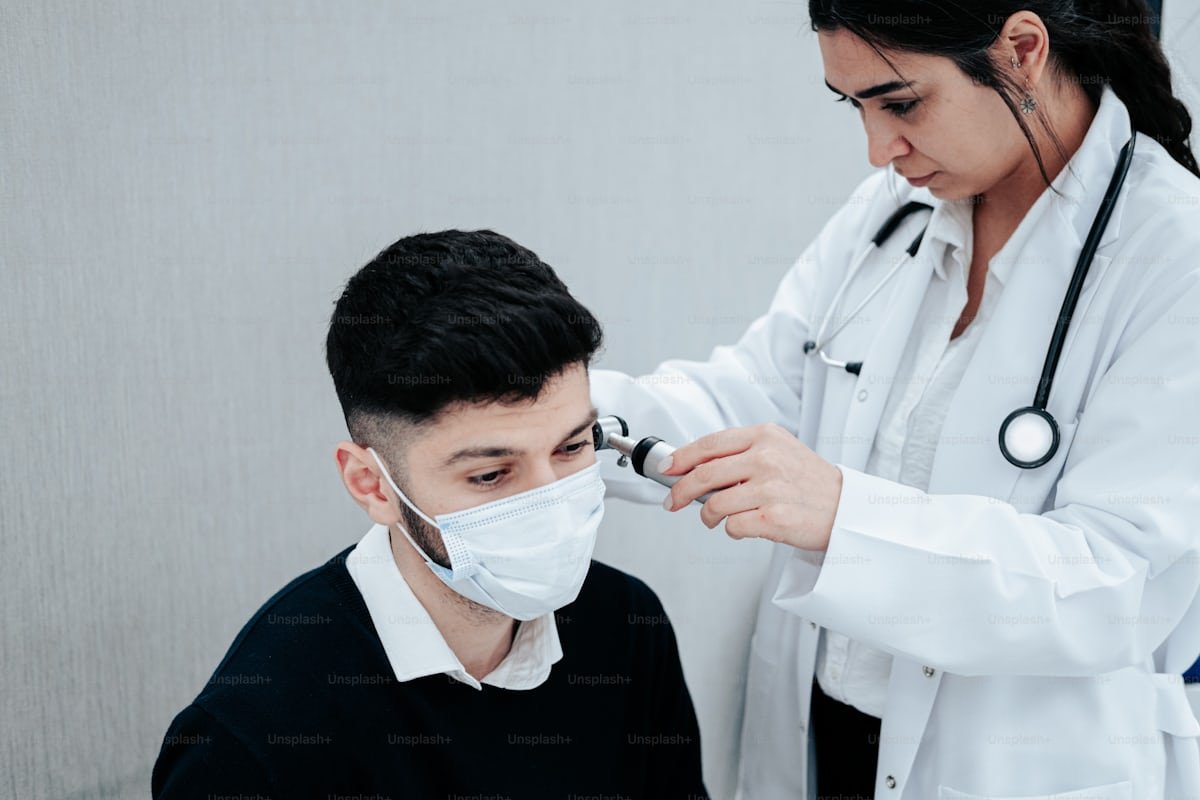Health
Why Is There No Health App on MacBook?

Apple has become a pioneer in integrating health and technology. From the Apple Watch to the iPhone’s Health app, users are increasingly empowered to monitor and manage their well-being digitally. Despite this, a surprising question lingers among Apple users: Why is there no Health app on MacBook?
The absence of the Health app on macOS is perplexing to many, especially when the Apple ecosystem is designed for seamless integration. Let’s explore the reasoning behind this design choice and understand what it means for users.
The Health App: A Mobile-Centric Tool
The Health app is deeply integrated with iPhone and Apple Watch. It was developed primarily to track real-time metrics such as heart rate, step count, sleep cycles, and other personal health data. These features are collected through mobile sensors or wearable devices.
Because MacBooks lack biometric sensors, they cannot gather or transmit health data natively. Therefore, the Health app would function only as a read-only viewer on macOS, offering limited interaction.
Privacy Concerns and Data Sensitivity
Health data is among the most sensitive personal information. Apple has always prioritized security and user privacy. Storing and viewing this information on a device such as a MacBook, which is often shared or used for work, could raise privacy-related risks.
Additionally, macOS has a broader attack surface compared to iOS. While Apple uses end-to-end encryption and local device processing for health data, replicating that model securely on a MacBook poses unique challenges. For this reason, Apple has likely chosen to limit access to health data to mobile devices only.
Ecosystem Specialization: A Strategic Design Choice
Another factor is Apple’s product segmentation strategy. Each device serves a specific purpose within the ecosystem. iPhones and Apple Watches are designed to be personal devices, always on hand and equipped with the sensors needed to track health.
MacBooks, on the other hand, are productivity tools. While they can sync iCloud data such as emails, messages, and even photos, the focus remains on work-related applications. Introducing a Health app might disrupt this flow and blur the lines between personal health and professional productivity.
Software and Hardware Limitations
MacBooks are not equipped with hardware components required to collect health data. Without GPS sensors, heart rate monitors, accelerometers, or gyroscopes, the MacBook cannot actively contribute to real-time health tracking.
Even though it’s technically possible to sync health data from iCloud, Apple has chosen not to build a Mac interface for the Health app, possibly to avoid confusion or redundancy. Instead, Apple may prefer users to manage health-related information exclusively on their iPhone or Apple Watch, where the experience is richer and more intuitive.
iCloud Sync but No Direct Access
Interestingly, all your health data is already stored securely in iCloud if enabled. While the MacBook can access iCloud for many apps, Health data remains encrypted and invisible on macOS. Apple’s strong commitment to data separation ensures that only authorized devices with Touch ID or Face ID can view or manipulate this information.
Therefore, the exclusion of a Health app on MacBooks might be less about oversight and more about intentional design to protect user privacy.
Alternatives for Health Tracking on macOS
Although there is no native Health app on MacBooks, some users seek workarounds or third-party alternatives. Apps like Qardio, FitBit Connect, or web dashboards from services like MyFitnessPal allow data viewing through browsers or standalone apps.
However, these alternatives do not have full access to Apple’s HealthKit data. They operate within their own ecosystems, limiting their functionality compared to the native Health app on iOS.
Will Apple Add the Health App to Mac in the Future?
There is ongoing speculation about Apple expanding the Health app to macOS. With recent improvements in Apple Silicon chips and tighter integration across devices, the technical barriers are slowly diminishing.
Still, Apple has not announced any plans to bring the Health app to Mac. Until then, users should continue to use their iPhones or Apple Watches as their primary health data hubs.
Final Thoughts
So, why is there no Health app on MacBook? It’s a mix of practical limitations, privacy concerns, and strategic product design. Apple has prioritized user safety and data integrity by restricting access to the Health app on mobile devices. While this may seem inconvenient to some, it reinforces Apple’s commitment to a secure, specialized, and intentional user experience.
Though the MacBook plays a vital role in the Apple ecosystem, health data remains a mobile-first experience for now. As technology evolves, we may see new developments—but for now, your health lives securely in your pocket, not on your laptop.

Health
What De Health Thai: A Gateway to Holistic Wellness in Thailand

Thailand has long been revered for its serene landscapes, spiritual depth, and healing traditions. In recent years, a growing number of wellness seekers have discovered a hidden gem nestled within this tropical paradise—What De Health Thai. More than just a retreat, it is a sanctuary where the body, mind, and spirit reconnect through time-tested therapies and modern wellness practices.
An Introduction to What De Health Thai
So, what exactly is What De Health Thai? It is a holistic wellness center located in Thailand that offers a blend of detox programs, yoga classes, alternative healing therapies, and nourishing plant-based nutrition. The center is committed to natural healing, emphasizing internal cleansing and lifestyle transformation. Visitors don’t just relax here—they reset their entire being.
Why Wellness Tourism is Booming in Thailand
Over the past decade, Thailand has emerged as a global hub for wellness tourism. This surge can be attributed to its affordability, trained therapists, and an environment that naturally promotes healing. Consequently, places like What De Health Thai have gained popularity for offering tailored experiences that go beyond traditional spa packages. Instead, they offer immersive healing journeys.
Travelers worldwide are seeking more than just vacations. They crave meaningful experiences that rejuvenate them from within. That’s precisely what this wellness retreat provides—a chance to reset your health, mindset, and energy.
Core Services Offered at What De Health Thai
Visitors often choose What De Health Thai for its unique range of services. These programs are rooted in both Eastern and Western health philosophies. Moreover, they are curated to meet individual goals and needs.
1. Detox and Cleansing Programs
A highlight of the retreat is its detox program. Designed to eliminate toxins, it combines juice fasting, herbal supplements, colon hydrotherapy, and infrared sauna sessions. Participants typically report increased energy, clearer skin, and improved digestion after completing the program.
2. Yoga and Meditation Retreats
Daily yoga classes focus on alignment, flexibility, and breath control. These sessions are suitable for all levels, from beginners to advanced practitioners. Meanwhile, guided meditation promotes mindfulness and emotional balance.
3. Holistic Therapies and Healing
What De Health Thai also offers traditional Thai massage, Reiki, sound healing, and acupuncture. These therapies aim to harmonize the body’s energy flow and address both physical and emotional imbalances.
4. Nutrition and Plant-Based Meals
Nutrition plays a vital role in the healing process. Therefore, the retreat offers plant-based meals made with fresh, local ingredients. Meals are not only delicious but also designed to nourish and cleanse the body from within.
A Sustainable and Eco-Friendly Approach
Unlike commercial resorts, What De Health Thai integrates sustainability into its philosophy. Organic farming, waste reduction, and conscious living are at the heart of its practices. Guests are encouraged to embrace a more sustainable lifestyle—even after leaving the retreat.
Furthermore, the staff educates visitors on how to continue their wellness journey at home. This way, the benefits of the retreat extend far beyond the time spent in Thailand.
What Makes It Unique Among Other Wellness Retreats
Certainly, many retreats offer yoga and detox. Yet, What De Health Thai stands out for its personalized approach and intimate setting. With smaller group sizes, each guest receives individual attention and tailored programs. Additionally, the center’s tranquil location provides the perfect environment for deep introspection and transformation.
Guest reviews often highlight the warmth and expertise of the staff. Notably, many return year after year—testament to the retreat’s long-lasting impact.
Ideal for Everyone Seeking Inner Balance
Whether you’re battling stress, recovering from burnout, or simply wanting to reset your health, this wellness center provides a holistic solution. You don’t have to be a yogi or wellness expert. Beginners are warmly welcomed and guided every step of the way.
Moreover, retreats can be customized. From weekend packages to extended 14-day programs, options are available for every schedule and budget.
Booking Your Stay at What De Health Thai
Reserving your retreat is simple. The official website provides full details on available programs, accommodation, and pricing. Early booking is encouraged, as space is often limited due to high demand.
Although travel arrangements are handled independently, the staff assists with airport transfers and local transportation. Their hospitality ensures that your journey—from arrival to departure—is seamless.
Final Thoughts
If you’re looking for a comprehensive mind-body healing experience in a serene, supportive environment, What De Health Thai is the answer. It isn’t just a retreat—it’s a life-changing experience that fosters balance, clarity, and vitality. By choosing this haven of health, you’re investing in long-term well-being.

Health
What Can You Do with a Master’s in Public Health

Earning a Master’s in Public Health (MPH) opens the door to a wide array of career opportunities. Whether you’re passionate about disease prevention, health education, or policy development, this advanced degree offers the skills and flexibility to make a real difference.
In today’s rapidly evolving world, public health professionals are more important than ever. With growing awareness around global health issues, the demand for trained experts has significantly increased. But what can you do with a Master’s in Public Health? Let’s explore the diverse options available to MPH graduates.
1. Epidemiologist
If you’re interested in studying disease patterns and causes, becoming an epidemiologist could be the right fit. These professionals collect and analyze data to prevent future outbreaks and manage public health crises. From governmental agencies to international health organizations, epidemiologists are always in demand.
In addition to data analysis, they often work closely with healthcare providers and policymakers. By identifying health trends, they help shape more effective health policies and interventions.
2. Public Health Educator
Another rewarding path is becoming a public health educator. These professionals design and implement strategies to educate communities on healthy behaviors and disease prevention. Because education is essential for long-term health improvements, this role holds great value.
Public health educators often collaborate with schools, nonprofits, and government organizations. Their work ensures that individuals have access to accurate health information and resources.
3. Health Policy Analyst
Do you have an interest in shaping health laws and regulations? Health policy analysts research and evaluate the effectiveness of existing policies. They also propose new solutions based on current data and public needs.
Many MPH graduates in this role work with think tanks, advocacy groups, and legislative bodies. Through their efforts, they contribute to building equitable and efficient healthcare systems.
4. Biostatistician
If numbers and research are your strengths, consider becoming a biostatistician. These professionals apply statistical methods to public health research. Their work supports critical studies in fields like epidemiology, genetics, and clinical trials.
Biostatisticians often collaborate with pharmaceutical companies, academic institutions, and federal agencies. They ensure that data collection and interpretation meet the highest scientific standards.
5. Environmental Health Specialist
Environmental factors play a crucial role in community health. As an environmental health specialist, you’ll work to identify and mitigate health risks caused by pollution, chemicals, and unsafe living conditions.
These professionals inspect sites, analyze data, and recommend safety protocols. Many are employed by local health departments, environmental agencies, or private consulting firms.
6. Global Health Professional
If you’re drawn to international work, a Master’s in Public Health can take you around the world. Global health professionals address issues such as infectious diseases, maternal and child health, and health disparities.
This role often involves working with global NGOs, international aid organizations, and foreign governments. Not only do they develop public health strategies, but they also train local health workers and monitor program effectiveness.
7. Public Health Administrator
Management roles are also available for MPH graduates. Public health administrators oversee programs, manage budgets, and coordinate teams to ensure smooth operation of health services.
These leaders often work in hospitals, government health agencies, or nonprofit organizations. Because of their strong leadership and analytical skills, they help drive health improvements at a systemic level.
8. Academic and Research Roles
Teaching and research remain important avenues for public health graduates. Academic professionals educate future public health workers, while researchers focus on solving health challenges through scientific inquiry.
Many pursue doctoral studies, while others work at research institutes or universities. By contributing to academic literature, they influence both practice and policy.
9. Occupational Health Specialist
Workplace safety is a growing concern. Occupational health specialists focus on preventing injuries and promoting wellness in the work environment. Their assessments help businesses comply with health regulations and reduce employee risk.
This role often involves collaboration with HR departments, insurance companies, and government agencies. Because workplace wellness directly affects productivity, their input is highly valued.
10. Nonprofit and Community-Based Work
Lastly, many MPH holders find their calling in community health and nonprofit organizations. These professionals create targeted programs to serve underprivileged populations, ensuring access to care and education.
Whether it’s organizing vaccination drives or launching nutrition workshops, their grassroots efforts lead to tangible health improvements.
Why Choose a Master’s in Public Health?
With so many paths to choose from, the versatility of an MPH degree is one of its greatest strengths. It not only prepares you for specialized roles but also equips you with a broad skill set—including data analysis, program management, and policy evaluation.
Moreover, the job outlook for public health professionals continues to grow. According to the U.S. Bureau of Labor Statistics, fields like epidemiology and health education are expected to see above-average growth over the next decade.
Final Thoughts
So, what can you do with a Master’s in Public Health? The answer is: almost anything in the realm of health improvement and disease prevention. Whether you want to travel the world, crunch numbers, or educate your local community, an MPH provides the foundation to lead and innovate.

Health
What Can I Do with a BS in Health Science

A Bachelor of Science (BS) in Health Science opens doors to numerous career opportunities in the healthcare industry. This versatile degree offers a strong foundation in biological, physical, and social sciences. It prepares students for entry-level roles in healthcare or advanced studies in graduate or professional programs. If you’re wondering, what can I do with a BS in Health Science, this article outlines your best options and career paths.
Understanding the Scope of a Health Science Degree
Health science is an interdisciplinary field that focuses on improving health outcomes through research, technology, and healthcare services. A BS in Health Science combines courses in anatomy, physiology, public health, and healthcare management. Because of its broad scope, graduates are not limited to one specific job title or sector.
Entry-Level Jobs After Earning a BS in Health Science
If you’re looking to enter the workforce immediately, several entry-level roles are available. Many of these positions provide hands-on experience and act as stepping stones to more specialized roles.
1. Health Educator
Health educators work to promote wellness and educate communities about healthy behaviors. They often find employment in schools, government agencies, or non-profit organizations. A BS in Health Science equips graduates with the communication and scientific skills required for this role.
2. Medical and Health Services Assistant
In administrative roles, graduates assist healthcare managers with scheduling, billing, and compliance. These positions are ideal for those who enjoy organizing and optimizing healthcare delivery.
3. Community Health Worker
These professionals serve as a bridge between healthcare providers and communities. They help people access medical services, educate them about their health, and support health-related social services.
4. Patient Advocate
Patient advocates ensure that patients understand their rights and receive appropriate medical care. With growing attention to patient satisfaction, this role is becoming increasingly essential in clinics and hospitals.
Pursuing Advanced Degrees
Although many jobs are available at the bachelor’s level, pursuing graduate education can lead to higher-paying and specialized positions. Students often use a BS in Health Science as a stepping stone toward further studies.
1. Master of Public Health (MPH)
This advanced degree prepares graduates to address public health concerns on a larger scale. Career options include epidemiologist, health policy analyst, and public health consultant.
2. Master of Health Administration (MHA)
An MHA leads to administrative and executive roles in hospitals and healthcare systems. Professionals in this field focus on healthcare operations, finance, and leadership.
3. Graduate Programs in Medicine or Dentistry
A BS in Health Science provides the prerequisite coursework needed for admission to medical, dental, or physician assistant programs. Students interested in direct patient care often take this path.
Specialized Career Tracks
Another strong answer to the question what can I do with a BS in Health Science lies in specialized certifications and niche roles.
1. Occupational Health and Safety Specialist
These professionals analyze work environments and design programs to prevent injury or illness. With additional certification, a health science graduate can thrive in this role.
2. Health Informatics Specialist
Health informatics blends healthcare with data management and IT. Graduates who enjoy working with technology may find this path highly rewarding.
3. Clinical Research Coordinator
Responsible for managing clinical trials, these professionals work in research institutions, hospitals, and pharmaceutical companies. A health science background is highly relevant here.
Skills Acquired with a BS in Health Science
This degree builds a diverse set of competencies that are valuable across various roles. These include:
- Critical thinking and problem-solving
- Understanding of healthcare systems
- Public health and policy knowledge
- Communication and teamwork
- Ethical and legal standards in healthcare
Such transferable skills enhance both employability and career flexibility.
Benefits of a Career in Health Science
Graduates of health science programs often enjoy rewarding and impactful careers. Some of the key benefits include:
- Job Stability: Healthcare is a consistently growing industry.
- High Earning Potential: Many roles offer competitive salaries, especially with further education.
- Career Mobility: Skills can be applied in clinical, administrative, and research settings.
- Opportunity to Help Others: A health science career allows individuals to contribute positively to public well-being.
Conclusion
So, what can I do with a BS in Health Science? The possibilities are vast and varied. From entering the workforce in supportive and administrative roles to pursuing advanced degrees for specialized careers, this degree is a gateway to many fulfilling opportunities. Whether your passion lies in education, research, public health, or direct care, a BS in Health Science is a valuable asset that sets the stage for long-term professional success.

-

 Blog3 weeks ago
Blog3 weeks agoHow to Start a Health Blog: A Step-by-Step Guide for Beginners
-

 Health4 weeks ago
Health4 weeks agoHealthy camping recipe ideas: Nutritious food for great out
-

 Business3 weeks ago
Business3 weeks agoHow to Start a Home Health Business: A Complete 2025 Guide
-

 Health1 month ago
Health1 month agoHealthy Camping Recipes: Nutritious, Delicious Meals for the Outdoors
-

 Health1 week ago
Health1 week agoMega-Personal.net Health Archives: Ultimate Guide to Wellness
-

 Health2 weeks ago
Health2 weeks agoHow to make a manicotti: a step-by-step guide for a classic Italian dish
-

 Health1 month ago
Health1 month agoIs Chobani Yogurt Healthy? A Nutritionist’s Honest Take
-

 Food2 weeks ago
Food2 weeks agoWhat Foods Are Good for Vaginal Health?
